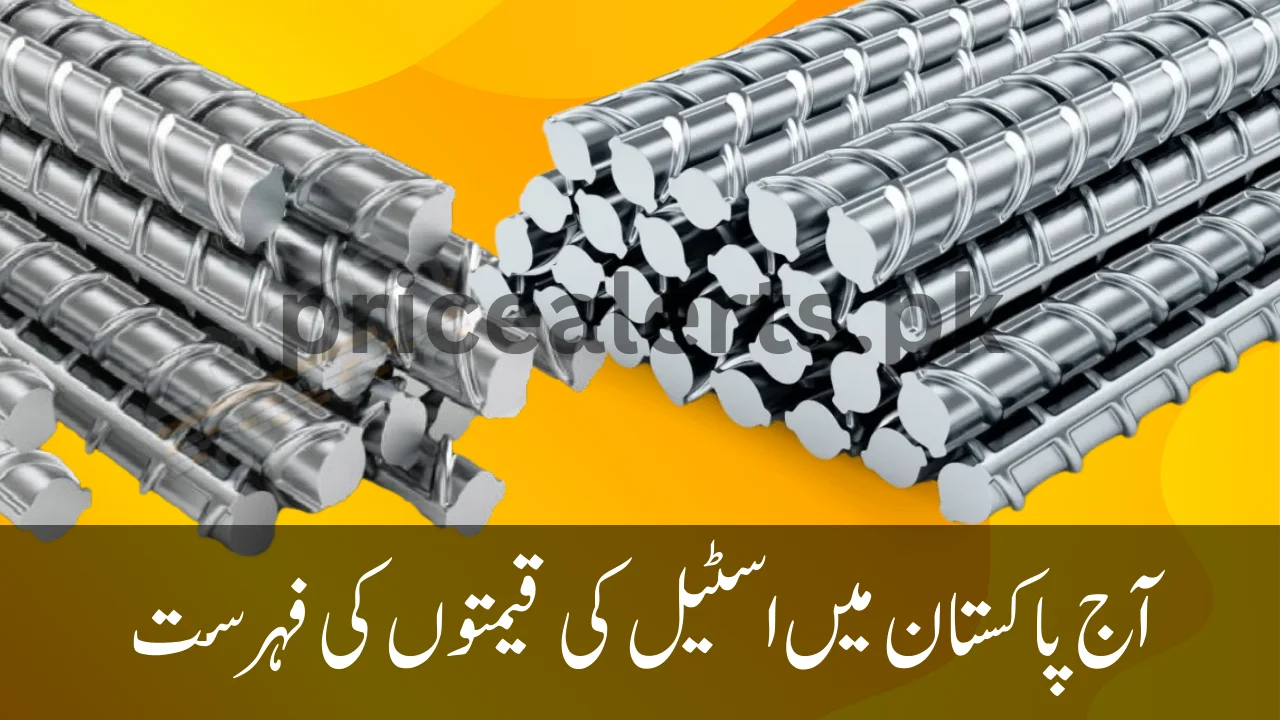Steel Price in Pakistan is a critical factor in the construction industry. As a fundamental material for projects of all scales, fluctuations in its cost can significantly impact overall budgets. This blog post offers a comprehensive analysis of the current steel price trends in Pakistan.
Table of Contents
Steel Price in Pakistan | Steel Rates Today in Pakistan August, 2024
| City | Per Kg (Rs) | Per Matric Ton (Rs) |
|---|---|---|
| Islamabad | PKR 234 | PKR 234,000 |
| Faisalabad | PKR 231 | PKR 231,000 |
| Peshawar | PKR 229 | PKR 229,000 |
| Gujranwala | PKR 230 | PKR 230,000 |
| Lahore | PKR 233 | PKR 233,000 |
| Multan | PKR 234 | PKR 234,000 |
| Quetta | PKR 235 | PKR 235,000 |
| Karachi | PKR 235 | PKR 235,000 |
| Bhakkar | PKR 234 | PKR 234,000 |
| Hyderabad | PKR 236 | PKR 236,000 |
| Mianwali | PKR 234 | PKR 234,000 |
| Dera Ismail Khan | PKR 235 | PKR 235,000 |
| Okara | PKR 231 | PKR 231,000 |
| Mardan | PKR 233 | PKR 233,000 |
Note: These are average prices, and actual prices may vary depending on the specific steel mill, grade, and quantity purchased.
40 Grade Steel Price in Pakistan
| Suta/mm | Per Kg (PKR) | Per Matric Ton (Rs) |
|---|---|---|
| 3 (10mm) | PKR 254 | PKR 254,000 |
| 4 (12mm) | PKR 253 | PKR 253,000 |
| 5 (16mm) | PKR 253 | PKR 253,000 |
| 6 (20mm) | PKR 253 | PKR 253,000 |
| 7 (22mm) | PKR 252 | PKR 252,000 |
| 8 (25mm) | PKR 252 | PKR 252,000 |
60 Grade Steel Price in Pakistan
| Suta/mm | Price per Kg | Per Matric Ton (PKR) |
|---|---|---|
| 3 (10mm) | PKR 256 | PKR 256,000 |
| 4 (12mm) | PKR 255 | PKR 255,000 |
| 5 (16mm) | PKR 255 | PKR 255,000 |
| 6 (20mm) | PKR 254 | PKR 254,000 |
| 7 (22mm) | PKR 254 | PKR 254,000 |
| 8 (25mm) | PKR 254 | PKR 254,000 |
40 Grade Steel and 60 Grade Steel Difference
There are two main grades of steel commonly used in Pakistan: Grade 40 and Grade 60. Grade 60 steel is generally considered stronger and more durable than grade 40.
Additional Tips for Finding Steel Prices in Pakistan
Here are some additional tips to help you find the best steel deals in Pakistan:
- Contact steel mills directly: While this may not be possible for small quantities, some large steel mills may offer competitive rates for bulk purchases.
- Negotiate with suppliers: Don’t be afraid to negotiate with steel suppliers, especially for large orders. They may be willing to make concessions.
- Compare prices online: Many Pakistani steel retailers and industry publications list current steel prices. Search online using terms like “steel price in pakistan” or “steel price today”.
- Consider Alternatives: Depending on your project needs, explore alternative materials such as using recycled steel or reinforced concrete for specific applications.
Click the following to view similar post
Conclusion
Steel price in Pakistan are currently experiencing a slight decline, which is providing some relief to the construction industry. However, being aware of price trends and fluctuations is crucial to making informed decisions when purchasing steel for your projects. By utilizing the resources described above, you can ensure that you get the best possible prices for your steel needs.
Frequently Asked Questions (FAQs) about Steel Price in Pakistan
Q: What factors can affect steel prices in Pakistan?
A: Many factors can affect steel prices, including global market dynamics (supply and demand), exchange rates, government policies (taxes and duties) and local production costs.
Q: Are there any seasonal variations in steel prices?
A: Steel prices may fluctuate based on seasonal demand. Prices are generally lower during construction seasons.
Q: How can I stay updated on current steel prices?
A: Subscribe to industry publications, follow steel supplier websites, and use online resources that track steel price trends.
Q: What is the difference between Grade 40 and Grade 60 steel?
A: Grade 60 steel is stronger and provides better tensile strength than grade 40 steel. This difference in strength is reflected in price, with Grade 60 usually being slightly more expensive.
Q: Where can I find a reliable steel supplier in Pakistan?
A: Grade 60 steel is stronger and provides better tensile strength than grade 40 steel. This difference in strength is reflected in price, with Grade 60 usually being slightly more expensive.

